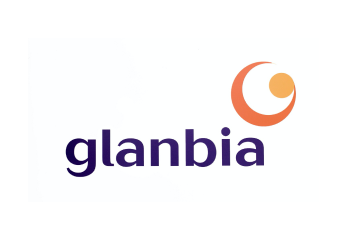Researchers From the University of Chicago & The BCI Research Centre at RCSI Closing in On Metastasis of the Brain
Brain tumours in general are some of the hardest to treat cancers. Whether it is a primary tumour in the brain or whether it is a metastasis, it is very difficult to treat. Drugs that target specific signalling pathways are generally thought to be superior to cytotoxic chemotherapy, when they work, because they typically avoid many toxic side effects.
Professor Geoffrey Greene at the Ludwig Breast Research Centre, University of Chicago and his team are working with Professor Leonie Young at the Breast Cancer Ireland Research Centre in the Royal College of Surgeons in Ireland on two brain metastasis research projects, one of which was recently published in Nature Communications.
The Greene lab are doing pre-clinical experiments that complement both studies.
“This work is so difficult to do in Ireland and in the UK because we cannot grow tumours big enough to be able to study fully. However, in the US they have that capability and Greene’s studies are almost complete” comments Young.
Professor Young’s paper focuses on brain metastasis and the recognition that there’s a defect in DNA repair in some tumour cells that leads to genomic instability and makes them more susceptible to agents that inhibit DNA repair. If the tumours cannot repair their DNA, they will die.
“In our clinic we see patients with symptomatic breast cancer. Irish patients have a particular interest in participating in clinical trials and we are very grateful for their ongoing support. The research conducted between Ireland and Chicago is truly symbiotic. ” Young continues. “In Ireland we can conduct longitudinal studies and follow the patient all the way through the diagnosis and treatment, from primary to metastasis to therapy. With brain metastatic disease that is very tricky because it is often years before the cancer reappears.”
Professor Greene believes this is a very fruitful collaboration with both groups working together, comparing and combining their complimentary results. Now with two in vivo studies going on, the good news is that both are showing great results. These studies are focused on brain metastasis and different mechanisms/targets. The first study focuses on pathways that involve epigenetic regulators, especially ones affecting RNA methylation. It relates to the stability of gene transcripts that occur in tumours and how to inhibit those pathways that are identified as promoting metastasis.
“The drug that we tested originally was called meclophenamic acid (MA2). In lab-based studies it appeared to be working but when we tried it in pre-clinical models, it wasn’t effective. We figured out that it wasn’t very stable or specific for the protein we were trying to target, an RNA methyl ‘eraser’ called FTO. We noticed that another group published a paper in Cancer Cell in 2020 that identified two new drugs that targeted this specific enzyme and that had much better characteristics. Therefore, we shifted to one of these drugs, called CS2, and just finished the study in late January. In this study we observed a very significant inhibition of tumour growth. Although we still must fully analyse the data, the results are very encouraging,” says Greene and continues, “The second time around clearly worked, which shows the difficulties of doing research. Some things you think are going to work end up not working and then you must figure out why. In this case, we did figure out why.”
Greene’s team needed the pre-clinical data because without that they do not know for sure what is going to happen in a living person.
“Lab models are not always perfect – but they’re pretty good. Cell and tissue explant studies also provide excellent, complementary information, but we really need both to help us decide if an approach is going to translate to people. This is our contribution to the collaboration.” Greene continues.
The Irish team have several tumours specimens that were collected, frozen and shipped to the US. Each one has different characteristics and represents a different patient.
“We have focused heavily on specimens that metastasize to the brain because that’s a major focus of the Irish research.” Greene adds.
The second drug that the Chicago team are working with is niraparib, which is one of several PARP (poly ADP ribose polymerase) inhibitors (PARPi). These drugs target the PARP1 enzyme that’s involved in DNA repair. PARPi traps PARP1 at sites of DNA damage and stalls the replication fork, which results in genomic instability and cell death. PARPi drugs are very effective inhibitors of certain cancers, and the good thing is that this drug is already approved for use.
“In collaboration with Leonie’s group, we’re testing it in the same tumour model. Anytime that we use a drug that’s already been approved for clinical use is great, because we can apply it to the given situation, which in this case is breast cancer metastasis to the brain, without having to go back through extensive FDA approval”
The bi-annual, Cancer Conference, chaired by Professor Leonie Young (RCSI), Professor Donald P McDonnell (Duke University), Dr Damir Vareslija (RCSI) and sponsored by Breast Cancer Ireland took place from 19th October – 21st October 2022.
For more details click here: https://www.breastcancerireland.com/news/worlds-leading-researchers-gather-in-dublin-for-the-breast-cancer-ireland-cancer-think-tank/

















